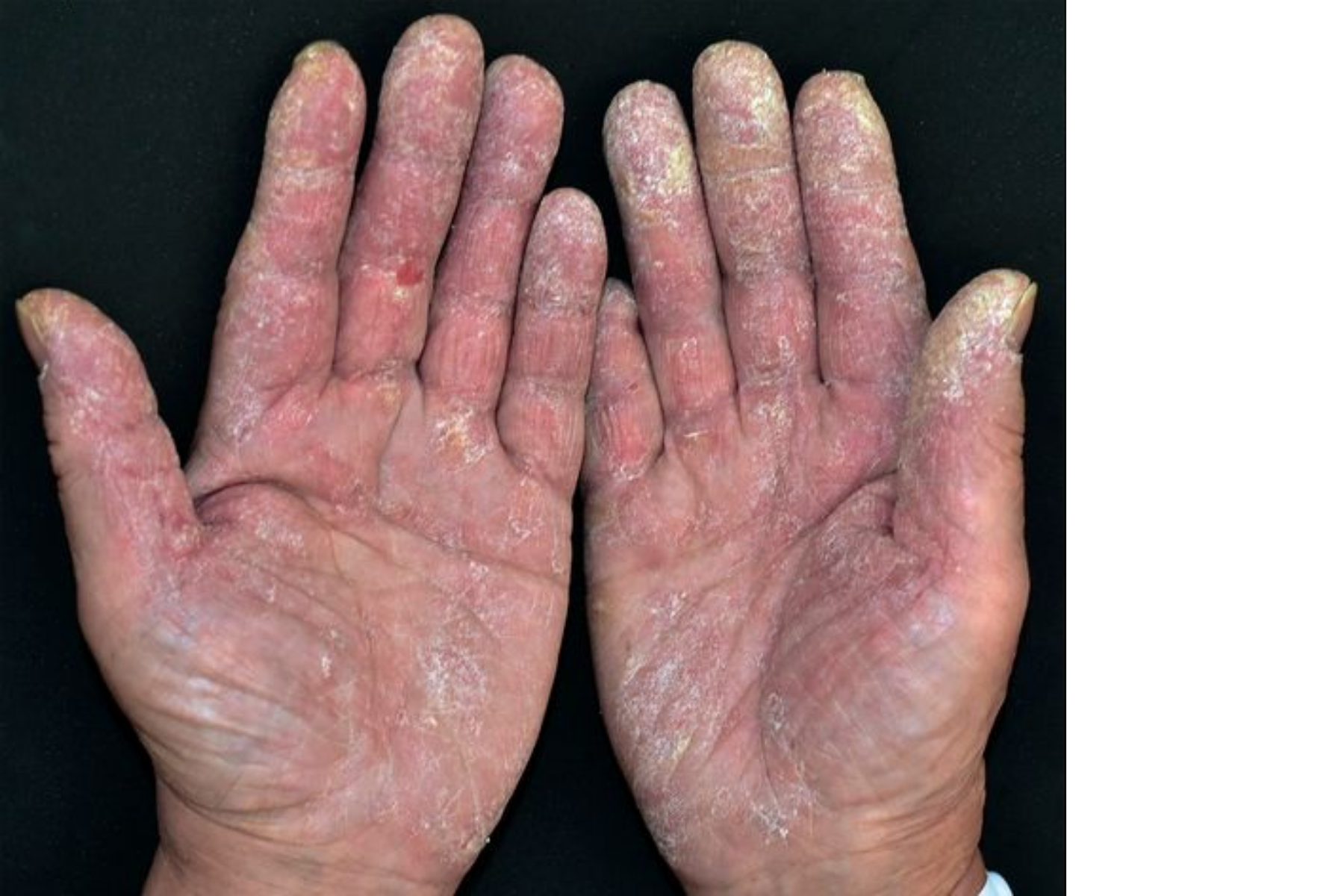Antisynthetase Syndrome (ASS)
How to pronounce it: Antisynthetase - ant-eye-sin-theh-tays
AiArthritis defines Antisynthetase Syndrome as:
Antisynthetase syndrome is a rare autoimmune disease that can affect different parts of the body. It is usually associated with antibodies (like Anti-Jo1) that attack proteins in the body. This condition is a type of myositis (muscle inflammation).
Symptoms & Characteristics
Common in All AiArthritis Diseases
Flares: Periods of worsening symptoms are called flares. A flare can last for hours, days, weeks, or months.
Physical Activity: Condition improves with activity and exercise and worsens with rest.
Comorbidities: When inflammation is left uncontrolled due to lack of proper treatment, comorbidities can develop. 70% of patients with chronic, lifelong disease will develop comorbidities, including dual or triple diagnoses.
Family History:
Autoimmune diseases often run in families, indicating a potential genetic predisposition where that gene can cause disease. Autoinflammatory diseases can occur multiple times in a family, but is based off of genetic mutation. It is not a gene that causes the disease— but a mutation on the gene that can cause the disease which can then be passed on to the next generation.
"Auto" Symptoms
Fatigue: Severe fatigue or exhaustion that may not be helped by caffeine/stimulants and can happen even after a long period of rest.
Cognitive Dysfunction: Brain fog or periods of time where thinking gets clouded and it becomes difficult to concentrate.
Flu-like symptoms: Without having the flu- nausea, muscle weakness, and general malaise.
Fever: Typically low grade in autoimmune (with exception of juvenile idiopathic arthritis) and higher grade in autoinflammatory (% strongly varies per disease).
Reference: Early Symptoms of AiArthritis Study, AiArthritis, 2019.
Inflammatory Arthritis Symptoms
Stiffness: Severe stiffness in one or more joints, especially in the morning or after sitting for long periods of time.
Joint Pain: Episodes of joint pain that may last for hours, days, or even weeks, that can appear and disappear suddenly. Often described as “jumping pain” into different locations.
Typically the joint pain will coincide with one or more “Auto” symptoms and start and stop suddenly - for no apparent reason (which is called a "flare"). Some people will experience all of the above symptoms, others only a few.
If you have any of the arthritis features, and at least one of the “Auto” features, please consult your physician about a referral to a specialist.
Symptoms Often Associated with Antisynthetase Syndrome
- Raynaud’s Phenomenon: Fingers and toes turn white or blue in response to cold or stress
- Mechanic’s Hands: Thick, cracked skin on the sides of fingers and palms
- Muscle weakness and pain (polymyositis/dermatomyositis)
- Shortness of breath and coughing (possible ILD)
- Difficulty swallowing
(dysphagia)
Diagnosing Antisynthetase Syndrome
There’s no single test that can confirm an antisynthetase syndrome diagnosis, so rheumatologists use a combination of physical exams (such as pulmonary function tests and electromyography), blood tests (particularly for anti-tRNA antibodies, like anti-Jo-1), and imaging studies such as high-resolution computed tomography (HRCT) or MRI. Family history of autoimmune or autoinflammatory diseases is also considered.
For a more definitive diagnosis, a muscle or lung biopsy may be required, especially if there are signs of muscle inflammation or interstitial lung disease, both of which are common in antisynthetase syndrome.
While there are no specific ACR or EULAR guidelines exclusively for antisynthetase syndrome, both organizations recognize the importance of these diagnostic methods in identifying this rare autoimmune condition, emphasizing the need for comprehensive evaluation to manage the associated muscle, lung, and systemic symptoms.
Antisynthetase Syndrome Treatment Options
Treatment OptionsTreatments are tailored to each individual's disease, but visit our Treatment Options page to learn more about the different types of treatments that are used for Antisynthetase Syndrome.
What Fellow Antisynthetase Syndrome Patients Want You to Know
Submit YOUR AdviceWe need YOUR advice! Fill out this form to give peer advice to those with your disease.
Interesting Facts about Antisynthetase Syndrome
- Antisynthetase syndrome was first recognized in the 1990s when doctors linked the presence of autoantibodies targeting synthetase enzymes with certain symptoms, such as interstitial lung disease and myositis. The name comes from these autoantibodies, which target “synthetase” enzymes crucial for protein production in cells.
- Females are twice as likely to develop Antisynthetase Syndrome compared to males
- Up to 75% of those with Antisynthetase Syndrome will develop Interstitial Lung DiseaseAnti-Jo-1 antibody is most common antisynthetase antibody. Others include PL-7 and PL-12. Five additional antisynthetase antibodies have been identified so far, but there are much more rare
Antisynthetase Syndrome Awareness Days/Months
- World Autoimmune and Autoinflammatory Arthritis Day - May 20th
- Rare Disease Day - February 29th (28th)
- Autoinflammatory Awareness Month - August
- Rheumatic Disease Awareness Month - September
- Pain Awareness Month - September
- Chronic Disease Awareness Day - July 10th
- Invisible Disabilities Week - 3rd full week of October
Other Antisynthetase Syndrome Resources
In an effort to ensure this page has the most accurate and up-to-date information, this page is currently awaiting medical review. Some information is subject to change.
Page Last Updated: 10/31/2024




